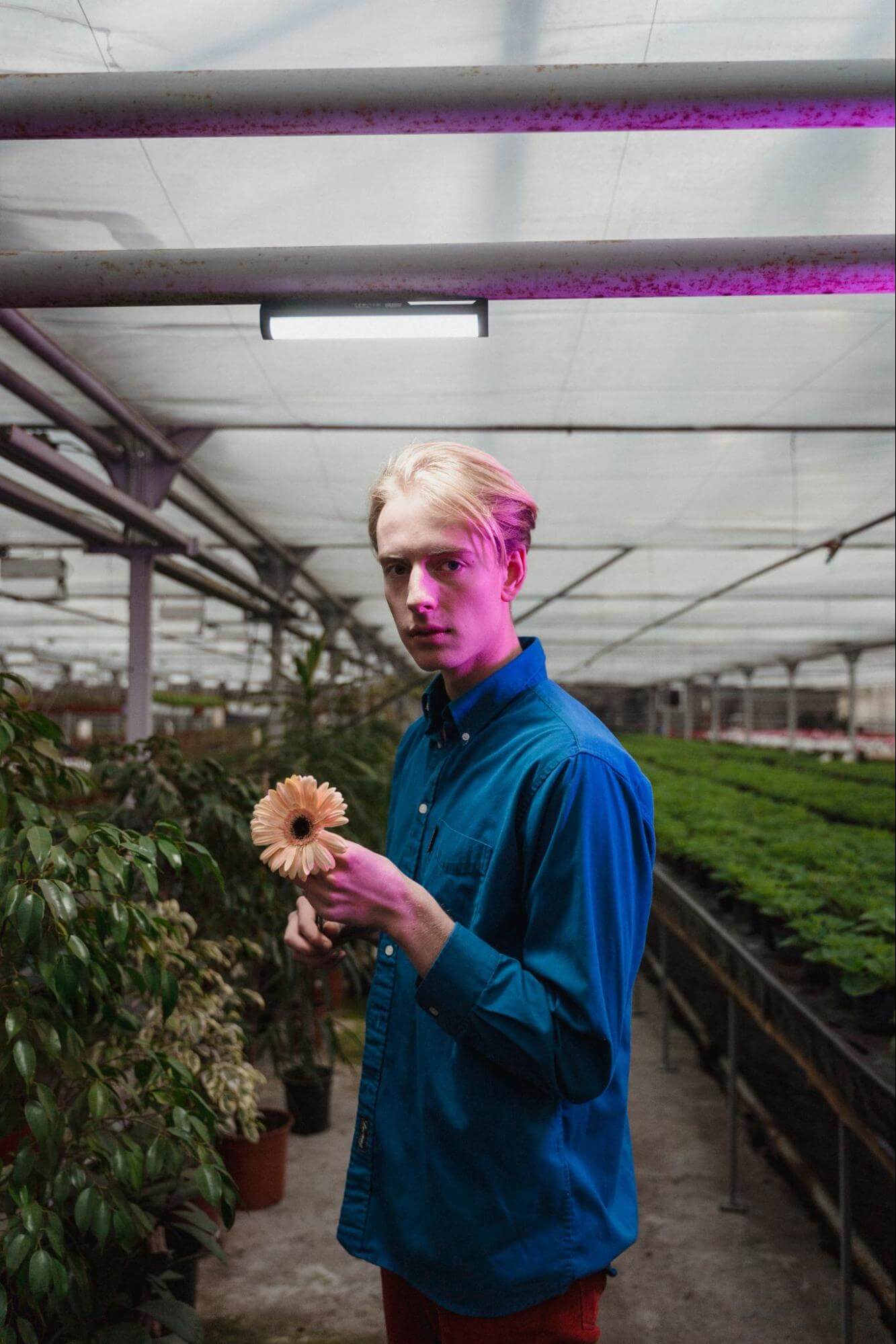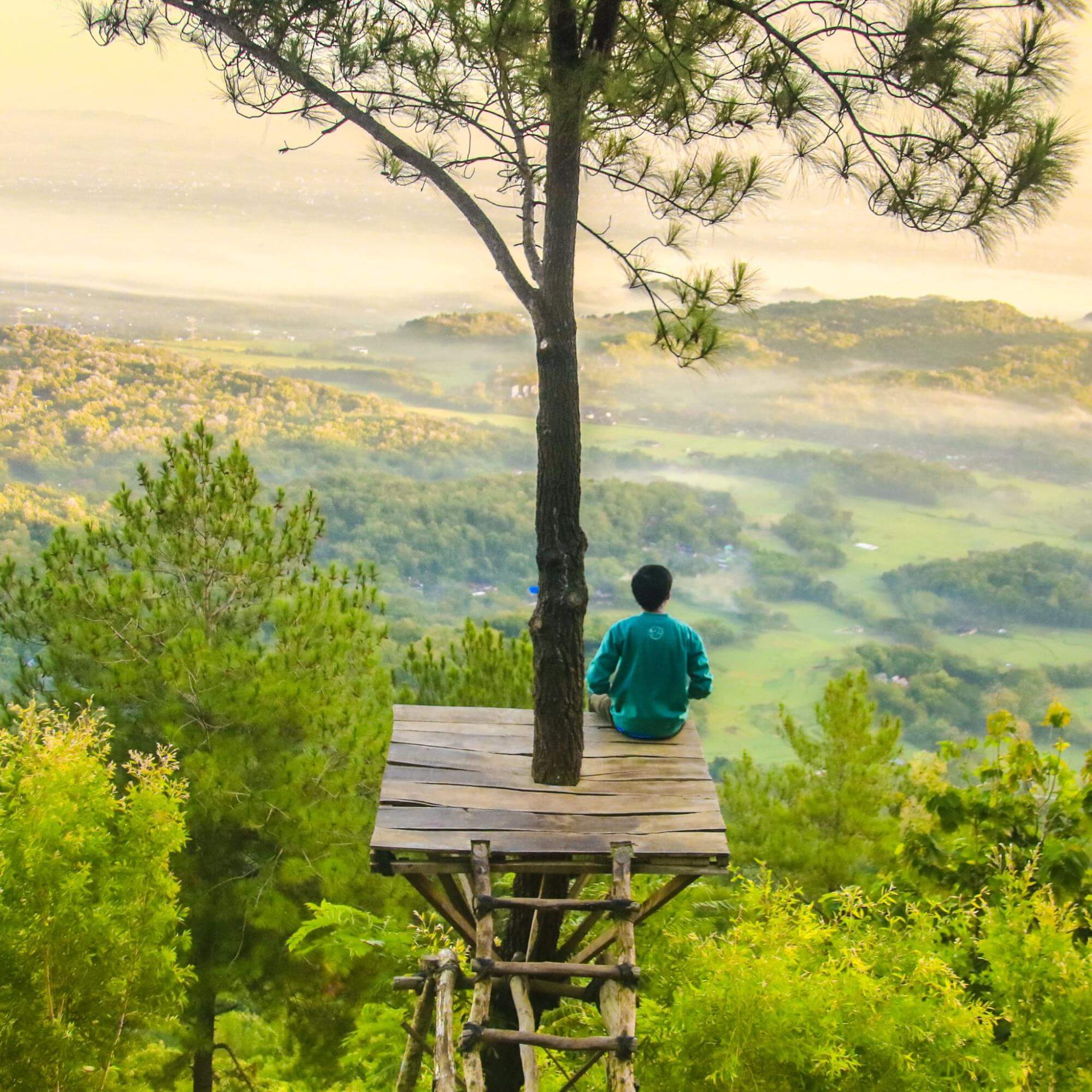Table of Contents
Eco-anxiety is a very real, very scary feeling that can be triggered at any moment. Whether you’re scrolling through Instagram, watching the news, or hanging out with your annoying cousin who loves to talk politics – you’re likely to come across something that will make you feel worried, slightly frightened, or completely terrified.
There was a time when humanity thought of climate change simply as a passing phase in our planet’s cycle… and the moment was almost instantaneously gone, leaving us with a bitter, unsettling truth; our home planet is irrevocably changing. As individuals, we can only do so much to hinder its detrimental progression. Missions to Mars, the search for inhabitable planets, Hubble, James Webb telescope… It seems we are constantly searching for intangible solutions to tangible problems. The planet Earth is gradually becoming an epitome of loneliness, separation, war, and impending doom.
If you’re experiencing existential dread, it’s essential to know you are not alone, friend. Trying times demand us to learn how to cope with eco-anxiety and never give up on trying to make a change despite it all.
Defining Eco-Anxiety
Eco-anxiety is not a clinical disorder, meaning you won’t be diagnosed if you were to talk to a psychiatrist. There are myriad forms of anxiety, including social anxiety, generalized anxiety, health anxiety, separation anxiety, and many more.
Eco-anxiety is a relatively new term, although inherently belonging to the spectrum (think of it as a renaissance form). If not addressed, this chronic fear of environmental cataclysm may lead to psychological disorders, depending on whether its symptoms are mild or severe. To put it bluntly, it’s a persistent fear of ecological annihilation. A study has shown that more than 50% of young people reported feeling distressed, angry, helpless, guilty, and anxious regarding climate change and practicing a sustainable lifestyle.

Eco-Anxiety Symptoms
When it comes to eco-anxiety, no one is spared. It can affect anyone, regardless of gender, age, and background. Indigenous communities and younger generations have proven to be more susceptible.
The common symptoms include:
- Fear (solastalgia)
- Thought fatalism regarding climate change
- Existential dread
- Rumination about environmental doom
- Guilt regarding carbon footprint and emissions
- Expressed anger towards individuals who deny climate change
- Depression
- Panic attacks
Coping Mechanisms
Our planet needs saving. But it also needs us to be strong and focused, not scared and pessimistic. This is a stealth kind of war; it requires stamina and perseverance, not our fears and tears.
There are ways to help you cope with eco-anxiety. You can start by surrounding yourself with positive people, listening to relaxing music, or doing something that makes you happy. You can also do things that help you relax and de-stress, such as meditating, exercising, or reading
No To “Doom-Scrolling”
Anxiety and control bloom within their little symbiosis. “Controlling by scrolling” will only leave you drowning in helplessness and sorrow. Try to limit your time spent on media: TV shows, movies, social media, news, podcasts… let it go. For now.
Absorbing all the negative (no matter how truthful) information will only enhance your sense of inability as an individual to make a tangible change, inevitably leading to depression and amplified feelings of “weltschmerz,” anger, and isolation. Take two. Turn off your phone.

Change Your Habits
If you haven’t already. The best advice on how to cope with eco-anxiety and feeling less guilty about your carbon print contribution (while also working on reducing your cortisol levels) is to adopt a greener lifestyle. Cultivating your green alter-ego and living by your values will help manage the fear of environmental doom and feelings of shame and hopelessness—one step at a time:
- Public transportation: cycling or walking reduces your carbon footprint and improves your overall health
- Spread the word: adopting a greener lifestyle may open your friends’ existential box
- Join the community: you will learn everything about climate change and feel empowered through volunteering and working with NGOs
- Clean your home from plastics: switch to reusable produce bags when shopping at the grocery store, and use freshie food saver bags to store your fruits and vegetables and help them last longer.
Talk To a Professional
Even though eco-anxiety hasn’t officially been listed as a disorder, many people are struggling with environmental grief – and therapists are here to help. All forms of anxiety disorders stem from the same nucleus – anticipating and fearing worst-case scenarios. You’ll be surprised to know that climate-aware therapists aren’t that difficult to find. Cognitive Behavioral Therapy (CBT) has proven to be the most efficient therapeutic technique.
Apart from professional help, there are numerous easy ways to combat climate anxiety. Physical exercise lowers our stress hormones and helps lower mental distress if done regularly.
Embrace Your Emotions
While having a lot in common at their core, eco-anxiety differs from other forms of anxiety. The explanation is relatively straightforward: nothing about eco-anxiety is disproportional or irrational, whereas other types of anxiety have little to no foundation in reality. Climate change is real; that’s the core difference. Instead of debunking your fears, a therapist would focus on accepting and embracing the reality of things, as it is your body’s natural response to the climate emergency.

Don’t Give Up On People
All we ever need is someone who fundamentally understands us. Eco-anxiety might create barriers when it comes to interpersonal relationships. Don’t give up on your friends and family, even if they can’t completely empathize with what you’re going through. Remember, existential dread is only for the ones who can carry it. Be patient and be understanding to those who can’t follow you in the dark without feeling abandoned or disappointed. Instead, connect with like-minded people across the globe. Support groups or even a pen pal living 5,000 miles away will offer you a shoulder when needed.
Off-The-Grid Time
The return to innocence. It’s nature hour. Spending time with the “subject” of your anxiety and grief has proven to be highly therapeutic. Connecting with nature is one of the best ways to heal your way through eco-anxiety. Avoid getting distracted by technology; it’s just “you and me time.” Sitting on your couch wrapped in environmental grief seems almost grotesque. Go out there, hug some trees. Shed a tear. It’s the only way to start your healing process. If you’re a parent, your eco-conscious child will be a great companion; invite them for a walk.
Final Thoughts
Learning how to cope with eco-anxiety starts with understanding and practicing the balance within. If we can’t change the world, we might as well practice being our best selves.
If you’re trying to find ways to cope with eco-anxiety by living a greener lifestyle, you might find some inspiration in these blogs:
- Green Spring Cleaning Tips
- How To Practice Environmental Protection And Conservation From Your Home
- Ultimate Guide On How To Use Reusable Produce Bags
